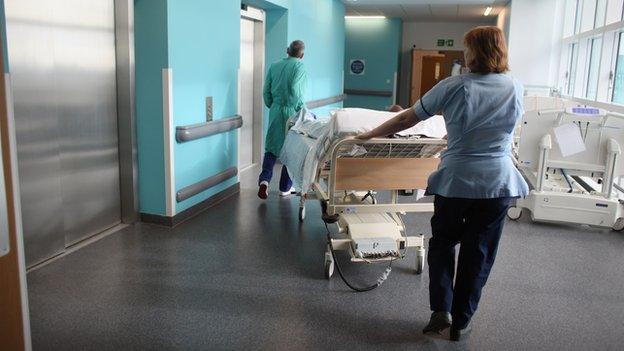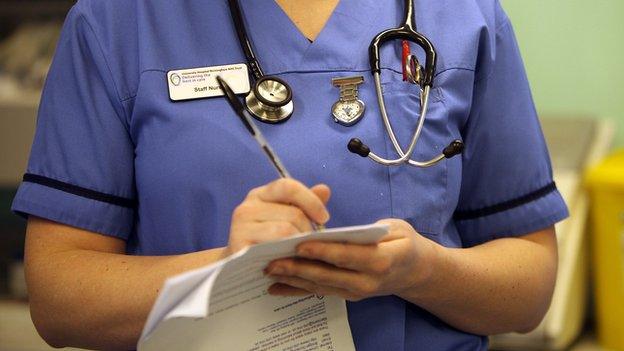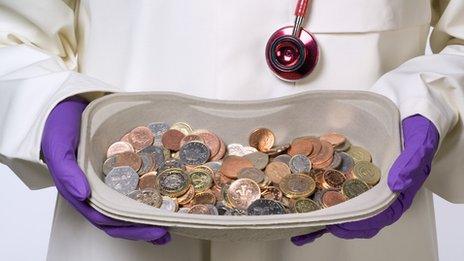NHS foundation trusts in England '£321m in deficit'
- Published

NHS foundation trusts' deficit has nearly doubled in six months from £167m to £321m, health regulator Monitor said
NHS foundation trusts are £321m in deficit, according to the health regulator Monitor.
More than half of all foundation trusts - which are given foundation status as a mark of excellence - are now in the red, Monitor's quarterly report warned.
The report, which looked at 147 trusts between October and December last year, said the use of expensive agency staff was having a drastic impact on budgets.
The Department of Health said it was increasing budgets by £2bn next year.
The report found that 78 trusts (53%) were in deficit, of which 60 are acute trusts which manage hospitals in England.
Many of the organisations were clearly struggling with their finances as a result of increased pressure on services, Monitor's quarterly report warned.
The need to make cost savings was also putting trusts under "exceptional pressure", it added.
Increasing demand
The £321m deficit had risen from £254m in the previous quarter, while it was £167m in the three months prior to that, the report found.
Trusts spent £419m more than planned on staff because of high use of contract and agency workers, while £810m worth of cost savings was £210m less than planned.
Foundation trusts saw 2.7 million people in their A&E units between October and December last year; 8% more than the same period the year before, research showed.
They also treated more than 2.3 million non-emergency patients in the quarter; an increase of 7% on the same period in 2013.

The Department of Health said it expected the NHS as a whole to end the year in financial balance
The 149 foundation trusts, which make up nearly two-thirds of all NHS trusts, failed to meet national waiting-time targets for A&E, routine and cancer care for three successive quarters, Monitor said.
Foundation trusts are awarded their title when they are considered well run enough to take on more independence from their local health authority.
It means they have a significant amount of managerial and financial freedom compared with other NHS trusts.
Monitor also said it had taken regulatory action against 28 foundation trusts - 19% of the sector - because of governance or financial concerns.
Its chief executive, Dr David Bennett, said the NHS needed to "move rapidly towards more joined-up, efficient models of care" if it was to deal with the growth in demand for services.
'Financial difficulties'
Responding to the report, health think tank The Health Foundation pointed out that the figures did not include the recent period of severe winter pressure.
Adam Roberts, its senior economics fellow, said it was "extremely unlikely" that NHS acute hospitals in England would break even at the end of the financial year.
A financial deficit was now "the norm for NHS providers", he said.
A Department of Health spokesman said it expected the NHS as a whole to end the year in financial balance.
"We know the NHS is busier than ever, which is why we're increasing the budget by an extra £2bn next year to back the NHS's long-term plan to move more care from hospital to home," he said.
"All NHS organisations know that financial discipline must be as important as safe care and good performance."
- Published19 September 2014

- Published22 February 2014

- Published18 June 2014
